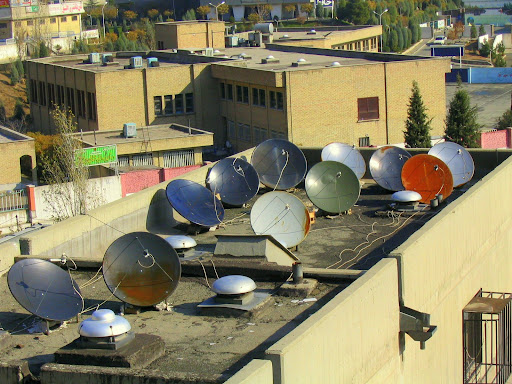
On the same day that Saeid Jalili, Iran's nuclear negotiator, was preparing two pages full of mistakes and silly plans for a nuclear summit in Geneva, an Islamic Revolution Court in Sannadaj, a large city in the Kurdistan Province of Iran, sentenced Hana Abdi, a 21-year-old student and feminist activist, to five years in jail in exile, in a small city near the border where political prisoners are held alongside common criminals.
Hana Abdi, captured 9 month ago, was accused of atheism, warfare, and activity against national security, but her lawyer has said there is no evidence in his client's file to back up the claims.
Abdi was arrested with Ronak Safarzadeh, who is still in Intelligence Minstery lockup. Similarly, Safarzadeh is accused of atheism, warfare, and terrorist plotting. Her confessions are the only evidence against her in her file. During her stay at the Intelligence Ministry, it was reported at least twice that she was transferred to a hospital, leading to reports she was tortured into confessing to crimes.
Iran's jails are the most dangerous in the world, not only for political activists, but for ordinary people as well, who are captured violating obligatory Islamic rules such as the mandatory wearing of the Hijab. Many girls have been beaten and raped in recent years, and some killed. There are lots of cases of "suicide" in jails; families believe the "suicides" are victims of rape and murder by interrogators.
All attempts to investigate such claims of torture, rape, and murder in jails get blocked by the court system. Ronak and Hana [pdf] are not the only young girls accused of atheism and warfare; there are feminists, leftist activists, and students in jail on such charges. Some are kidnapped and disappeared for months; there is a deep fear that they may be killed at any moment.
While most of the news coverage of Iran is focused on the nuclear issue, finding reports on the daily and systematic human rights violations happening inside Iran is rare to the point of being nonexistent. The nuclear issue casts a deep shadow over international coverage, obscuring what is happening to 70 million Iranians, people who suffering from Iran's brand of political Islam.
President Ahamdinejad's government - which says Iran's people are getting happier - is at the same time trying to tighten the noose with heavy sentences like capital punishment around students, feminists, teachers, workers, and political activists.
On the same day Ahmadinejad was on NBC saying Iranians are lucky to live under a dictatorship, 29 young men were hanged in Evin prison, some of them younger than 20.
While Ahmadinejad was smiling and saying to NBC, "You shouldn't be worried about the Iranian people," eight young women and one man are awaiting a sentence of death by stoning for adultery.
While the world continues to focus on the never-ending nuclear negotiations with Iran, Iran's human rights violations should play a part in the discussions [pdf].
Published in: The Seminal








